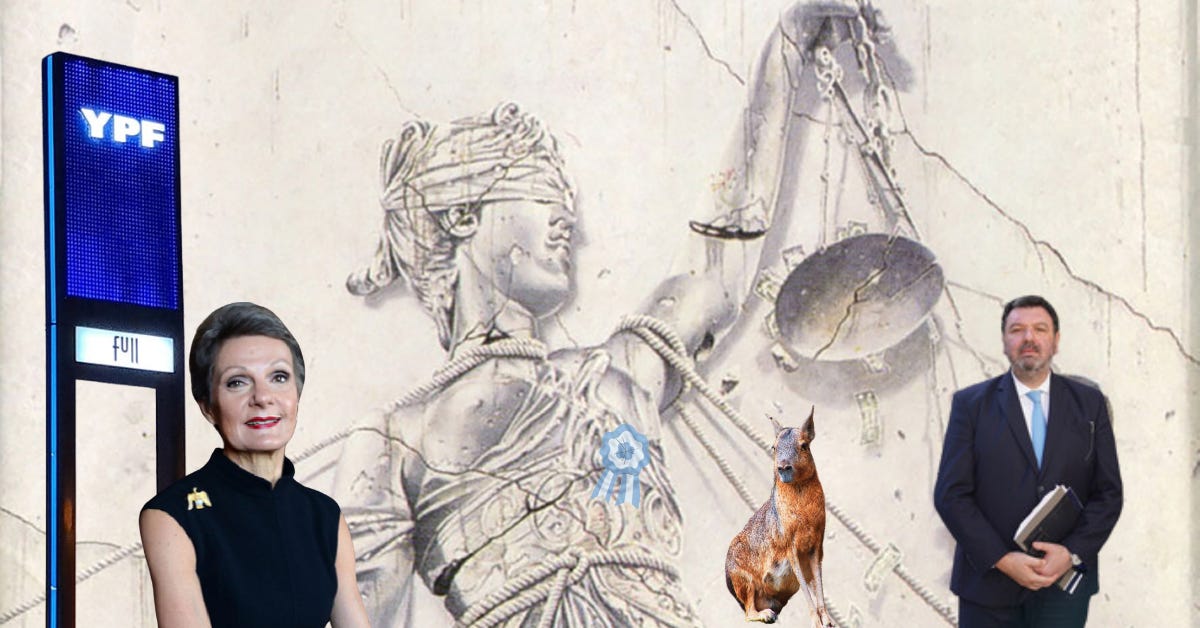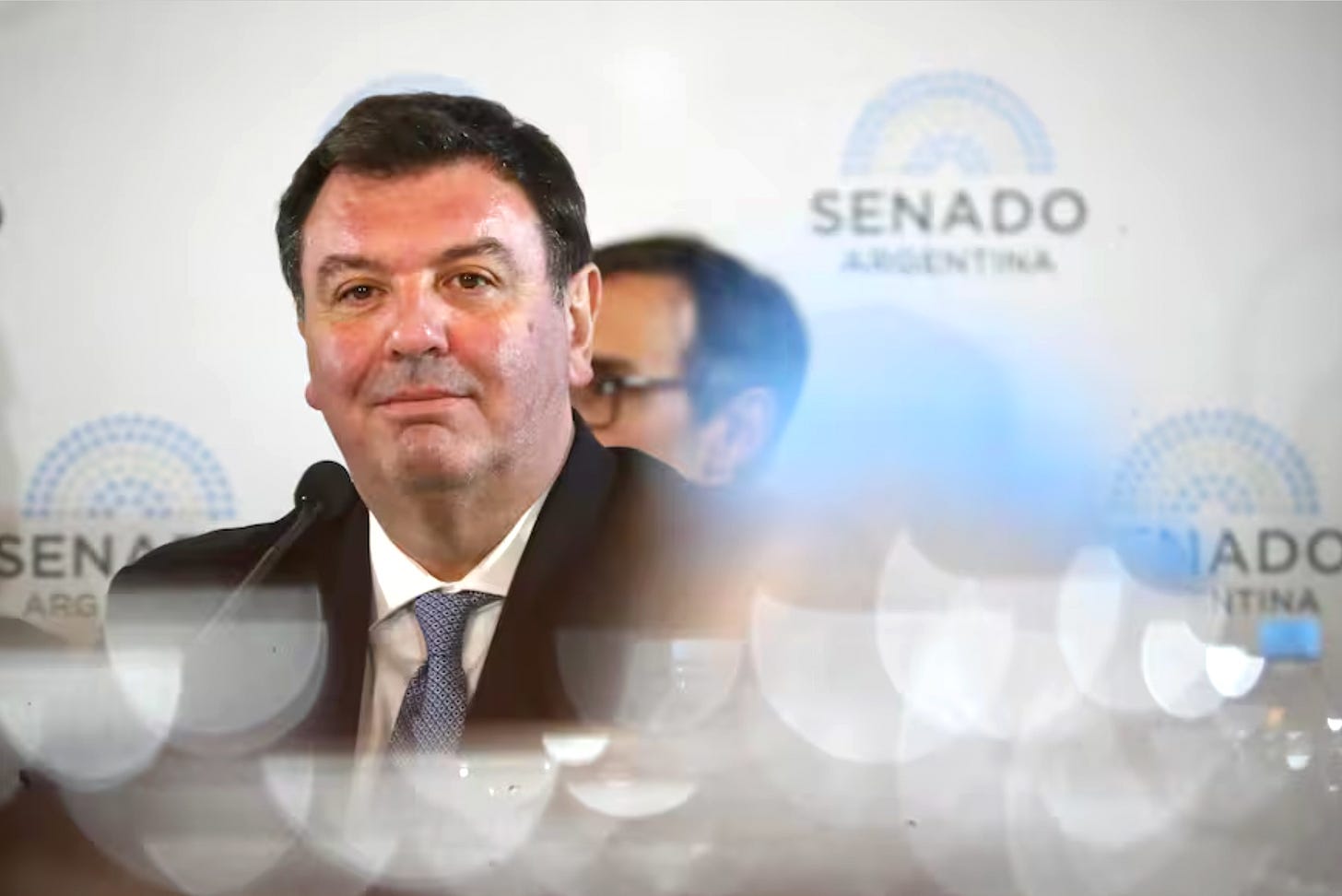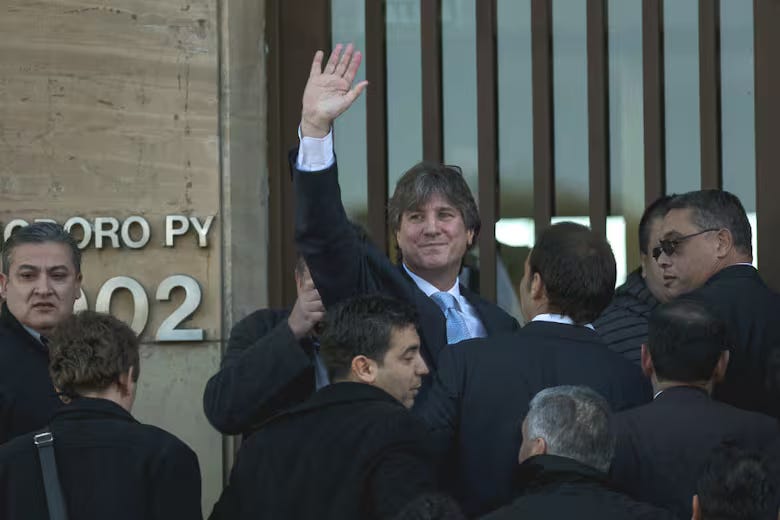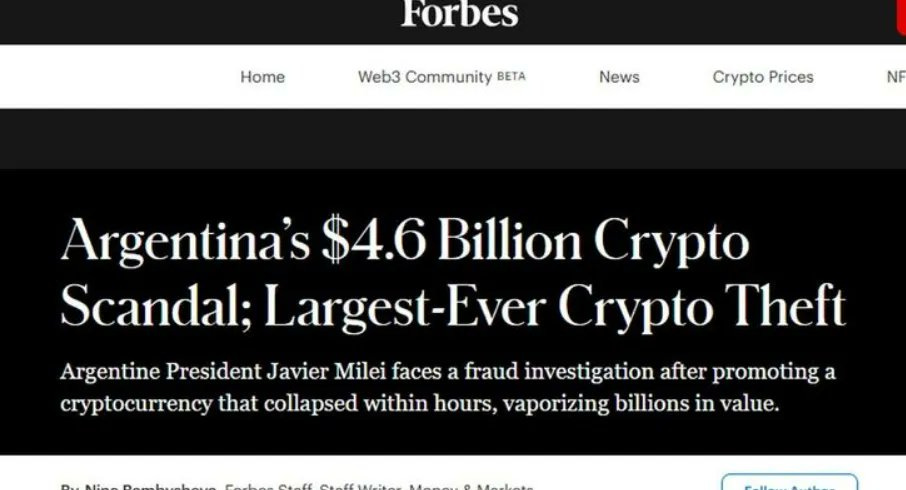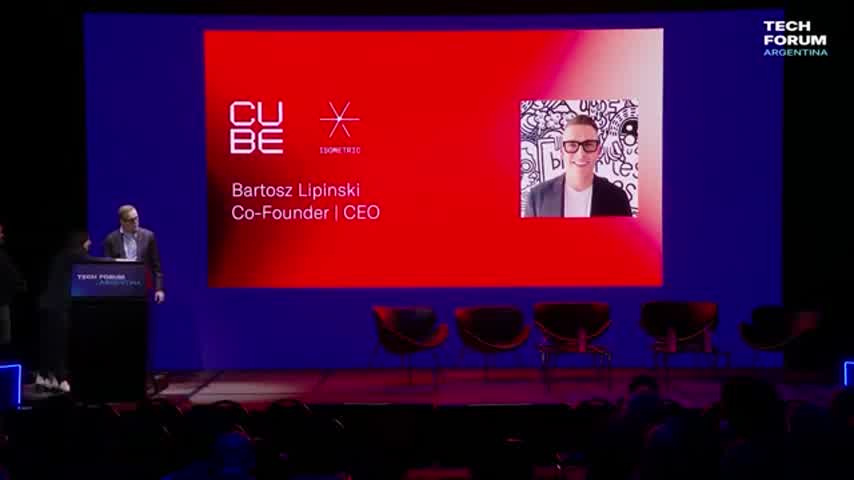...And Judges for All
A ray of light for Argentina in the YPF case, Milei's appointed judges and news around the $LIBRA-gate
Welcome Avatar! This week there was a glimmer of hope of a successful reversal for the $16B dollar YPF ruling against Argentina. The details and viability of said reversal, together with Milei’s Supreme Court appointee and new $LIBRA-gate developments.
YPF developments
There might be a light at the end of the tunnel for Argentina. The fate of Argentina's second-largest debt after the IMF loan Mauricio Macri took out in 2018, could take an unexpected turn.
Even though US Judge Loretta Preska has already signed a ruling that forces the Argentine state to pay $16 billion dollars + interest to the Burford fund for the 2012 YPF nationalization, this week the US judge opened a consultation with the parties in the process to ask them about a disturbing complaint that landed on her desk and could lead her to annul her ruling.
The NGO Republican Action for Argentina, an organization linked to Coalición Civica politician Elisa Carrio, requested the revocation of the ruling on the expropriation of YPF, which led Judge Loretta Preska to ask the opinion of the parties involved.
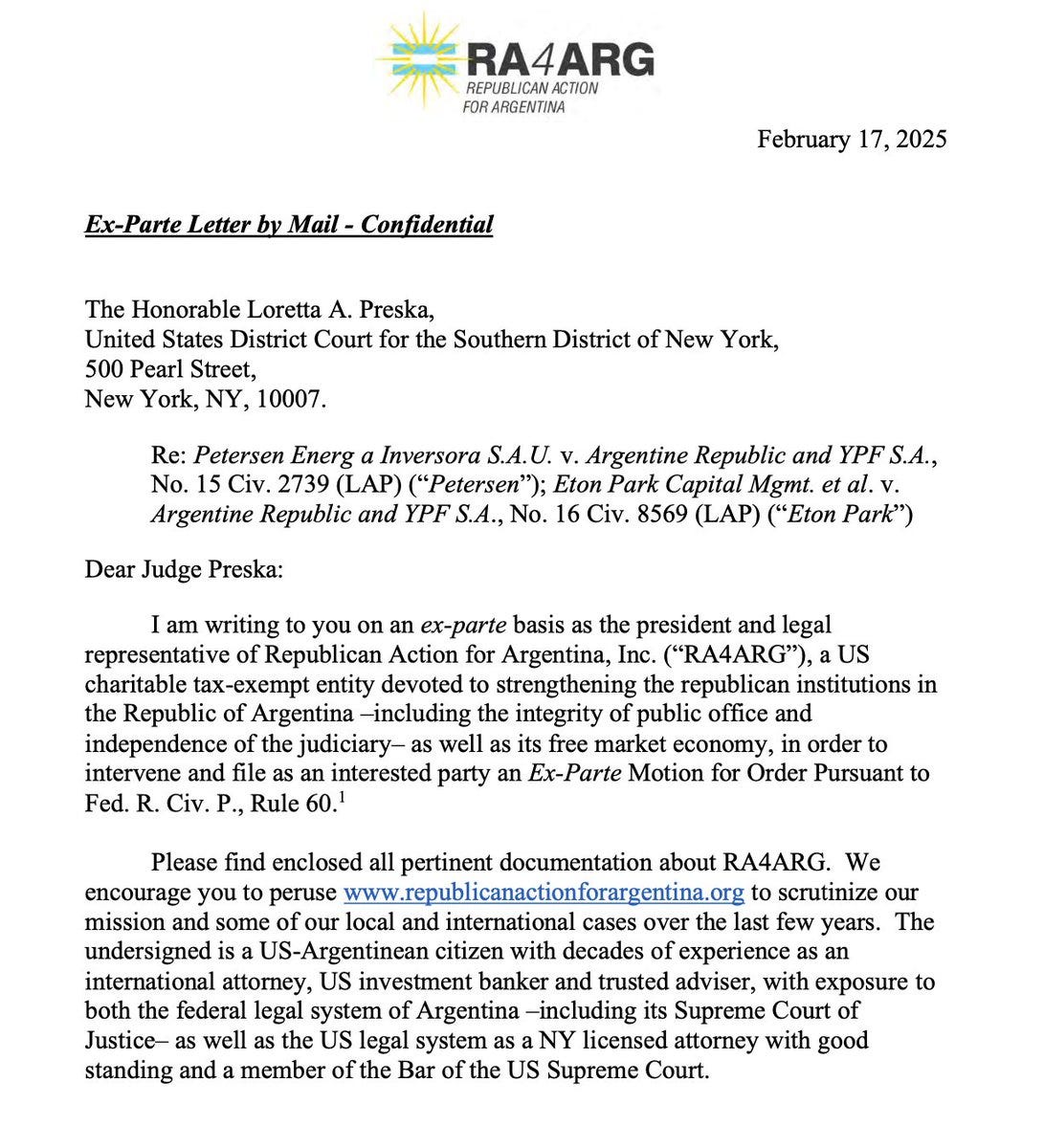
A breakdown of the most important developments in the case so far:
On May 31, 2023, Judge Preska blamed the Argentine State, but exonerated YPF from liability. On September 16, after a process in which the amount of compensation was analyzed, the judge confirmed that Argentina will have to pay almost US$16.1 billion plus interest (closer to $17 billion at the time of writing).
In February 2024, the Argentine State submitted to the Second Circuit Court of Appeals in New York the first brief with the arguments for the second instance judges to review Preska's sentence.
In September, the final briefs of the three parties (the plaintiffs, YPF and the State) were submitted to the Court of Appeals. Now, a three-member panel will be appointed to decide the date of a hearing in which the case will be heard.
This Monday, civil organization Republican Action for Argentina (RAFA), litigator and participant in various judicial proceedings in international courts in which Argentine interests are at stake, presented new evidence on the corruption around the YPF nationalization.
The Argentine government has until next week Tuesday to submit a response in which it will reiterate “its desire to clarify the facts” surrounding the nationalization of YPF in 2012, in line with the motion filed by Republican Action for Argentina.
We have discussed the huge corruption on every level of this $16 billion lawsuit in depth in YPF: The Laundromat of the Century (which discusses the Petersen shares and lawsuit in detail), The $16 billion YPF Inheritance and The YPF Gold Rush.
Despite the fact that the nationalization circus under the direction of Axel Kicillof and Cristina Kirchner invites one to feel some sense of justice being served in the sense of expropriation FAFO, ideally it shouldn’t have to be the Argentine taxpayers who end up footing the $16 billion bill to Burford (Grupo Petersen), Cristina Kirchner herself and her cronies at Grupo Petersen.
Let’s see if the evidence filed this week could change Preska’s ruling.
Lijo de mi Corazón
In other judicial news, the Milei admin seems dead set on appointing a controversial judge, Ariel Lijo, to the Supreme Court. Most opposition leaders were against this appointment, including some PRO politicians who are normally on Milei’s side.
This left Milei no recourse but to appoint Lijo by decree, instead of letting it come to a Senate vote, which led to more controversy. The Bar Association of Argentina expressed the following concerns:
“Just hours before the beginning of the ordinary session of Congress, the appointment of federal judge Ariel Lijo as minister of the Supreme Court of Justice of the Nation is unjustifiable.”
All this backlash leads us to the question: who is Ariel Lijo and why is the Milei administration so dead set on his appointment?
In many countries Supreme Court judges are starting to play a more prominent role —not always for the better, unfortunately —, like we are seeing in Brazil with Supreme Court judge Alexandre de Moraes.
On March 20, 2024, Milei proposed Lijo as a Supreme Court judge, assuming that Lijo would have the necessary votes in the Senate. Lijo then dedicated himself to collecting, one by one, the support of senators and governors. He even met and promoted his candidacy before senators who had already explicitly stated their rejection, criticizing him for the accusations and suspicions accumulated in his career during the last two decades.
It is probably a hard task to find a “clean” judge in Argentina, but the TD;DR on Ariel Lijo is that he is basically a Don Corleone in the Argentine legal system.
Lijo is among the judges most frequently reported to the Council of the Judiciary, with an average of 1.6 disciplinary complaints per year since he has served as a judge (32 complaints in total). Furthermore, he was also charged with criminal association, money laundering and bribery. Of the 89 corruption cases he was in charge of, 26 are still in the investigation period and never went anywhere: half of these 26 cases have been in this hibernation for over 10 years or more, some for over more than 20 years. Of the 89 cases presented, Lijo elevated only 14 to oral trial: he is the fourth judge who elevated the fewest cases (15.7%).
Basically what arrives at Lijo’s desk, dies there, except if there are other interests involved. The Ciccone corruption case around former Vice President Amado Boudou under Cristina Kirchner, and his sentencing, was first shelved under Kirchnerism and only brought to trial by Lijo once Mauricio Macri came to power and the tides had changed.
In the same case, Boudou's front man, Alejandro Vandenbroele, had received 7.6 million pesos in 2010 — close to $2 million dollars back then —, to advise the province of Formosa in the renegotiation of its debt with the Nation. Lijo concluded that this task was simulated and that the money was shared between a Formosan official and Vandenbroele. Formosa governor Insfrán was investigated in this case, but Lijo declared himself incompetent and sent the case back to Formosa. End of case.
There are multiple examples like this one throughout Lijo’s career, but by now you will understand that the size of the envelope or suitcase in these cases determines the outcome or lack thereof.
The overall sentiment is that once a case lands on Lijo’s lap, it gets archived if it doesn’t benefit certain parties. This could mean that either Lijo has dirt on officials in the Milei administration, and they are returning him a favor by means of his appointment, or they want to make sure he will rule favorably on future legal issues that might arise.
One interesting detail is that Ariel Lijo was also the appointed judge in the CoinX fraud case discussed in LIBRA: Imbalanced Confidence, linked indirectly to Milei due to his paid promotion on social media while already being a government official.
Either way, being this dead set on his Supreme Court appointment given his history, is not a great look.
$LIBRA Developments
One of Lijo’s future cases might evolve around the $LIBRA launch, which by now has faded from most headlines. Despite this, new information keeps coming in.
In my previous two $LIBRA articles, the main protagonist besides the Argentine president was definitely Hayden Davis, but after the Milei administration urged him to not give any more interviews, he has disappeared from the spotlight and apparently gone into hiding to protect his family.
His family is an interesting one and I won’t be delving into the genealogical scam tree of the Davises here. One fascinating nugget from this article suffices on that front:
Long before Hayden Davis became famous for getting Argentina’s President Javier Milei to promote a memecoin, his father told tales of counterfeiting cheques and assuming fake identities as a young man, eventually ending up in prison.
Further up the family tree, the tales get even wilder: Hayden’s grandfather was murdered by followers of his great-grandfather, the head of a polygamist cult that practised blood sacrifice.
Okay.
The online community started digging more into Davis’s relatives, and stumbled upon an interesting Unscripted Arena podcast episode from November last year with his brother Gideon Davis, who stated explicitly that the Milei administration had signed a Letter of Intent with his exchange “Cube”, around the whole $LIBRA launch:
“It is not a contract per se, but the letter of intent is signed and sealed by Javier Milei”
The podcast episode was promptly deleted from all streaming platforms, but fortunately some good samaritans were able to recover it.
This video of the episode includes the most important soundbites:
The fact that this was recorded before the $LIBRA launch turned out to be an orchestrated pump and dump, makes Gideon’s statement more credible, unless he was just bragging.
Other sources also confirm that Cube Exchange was very closely involved with $LIBRA, to say the least. This post on X from the Cube Exchange is still up as of today, and was posted in October last year:
Again, the infamous Tech Forum stands out as the main event, organized by Milei’s advisors Novelli and Terranos Godoy, where most of the decisions were made for the $LIBRA launch:

While Hayden and Gideon Davis are in hiding now, KIP Protocol tried to weasel out of its involvement by publishing a statement this week:
“1. KIP did not initiate the Libra project, or Project Viva La Libertad. We did not direct any activity nor did we participate in any discussions regarding the token launch. We are an early-stage AI company that became a convenient party to provide cover for other parties who initiated and managed the token launch.”
A hard sell after their previous tweet right after the $LIBRA launch:
Like KIP, Novelli and Terrones Godoy, Cube Exchange and its top executives have sought to distance themselves from the Davises and their company Kelsier Ventures.
Over the past few weeks, Cube deleted posts and photographs that reflect those ties, except for the mention of the Tech Forum itself in the post mentioned above.
At the Tech Forum, Cube Exchange CEO Lipinski said the following:
“I started coming to Argentina four months ago. I visited the country five times during that time and it was pretty crazy to see how everyone is using the blockchain with USDT, with all the assets being traded and how the economy is taking advantage of this system.
And that’s what really excited me about President Milei’s vision and how we could start growing with Cube.”
In July, months before the Tech Forum, Lipinski met with Karina Milei at the Casa Rosada, together with Mauricio Novelli, Manuel Terrones Godoy and Hayden Davis. It is clear that Cube Exchange is a lot more involved in this $LIBRA-gate than they care to admit.
Terrones Godoy published this video on his YouTube channel in June 2024 account titled: “The best airdrop of 2024? Being an early adopter of Cube can be a great goal,” and shortly after, Cube Exchange appeared as a sponsor of Agustín Laje, another influencer close to the Milei administration.

Terrones Godoy and Novelli are business associates and the latter is one of the people behind the Tech Forum. Laje is part of the teaching staff of N&W Professional Traders, the institute founded by Novelli where Milei is also a teacher.

The President kept a N&W Professional Traders reference link on his Instagram profile well into his presidency (it has been removed for a couple of months now), and has also done video promotions for that same firm owned by Novelli — one of his videos is still on the website:

It is safe to say the partnership between Novelli and Milei goes back a long way, which is probably also why he indicated that he wouldn’t get rid of him as an advisor.
Final Thoughts
By now, most of the backdoor deals and parties involved in the $LIBRA launch are crystal clear. Despite that, unless new information or hard evidence comes out, I doubt that this fiasco will have any major repercussions for the remainder of Milei’s presidency, also given the fact that the local media attention has already shifted to other areas.
What is more troubling is if this structure of opportunists around the president keeps existing in its same format, without any changes. That could make a continuation of the so far successful economic model increasingly difficult.
Milei’s Executive Order appointing judge Ariel Lijo to Argentina’s Supreme Court, can be interpreted as a clear signal to pave the way for more potentially favorable rulings in the interest of his administration if push comes to shove.
Ending on a more positive note, Argentina could face a significant windfall if US judge Loretta Preska decides to change her ruling based on the evidence presented of the corruption around Grupo Petersen’s slice of the YPF pie. This is probably not very likely to happen, but never say never.
See you in the Jungle, anon!
Other ways to get in touch:
1x1 Consultations: book a 1x1 consultation for more information about obtaining residency, citizenship or investing in Argentina here.
X/Twitter: definitely most active here, you can also find me on Instagram but I hardly use that account.
Podcasts: You can find previous appearances on podcasts etc here.
WiFi Agency: My other (paid) blog on how to start a digital agency from A to Z.


